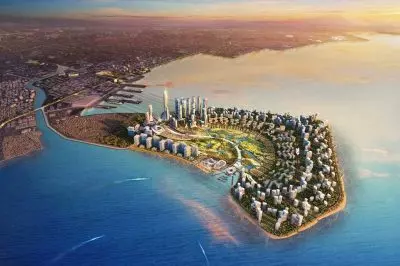 It was Philippine offshore gambling operators (also known as POGOs) that have turned the country into a popular gambling hub targetting Chinese residents through land-based casinos and online gambling services. Many of these POGOs are Chinese-originating firms that are operating in Metro Manila and employ Chinese workers.
It was Philippine offshore gambling operators (also known as POGOs) that have turned the country into a popular gambling hub targetting Chinese residents through land-based casinos and online gambling services. Many of these POGOs are Chinese-originating firms that are operating in Metro Manila and employ Chinese workers.
After Rodrigo Duterte took over the president’s position in 2016, the number of Philippine offshore gambling companies rose in number. The bad news is that the Philippine Government does not really know the exact number of POGOs that are currently operating in the country, the number of people employed by them, nor whether any taxes are being paid by these companies.
For some time now, both finance officials and economists have been calling the authorities to make POGOs pay more, but the local government has not been able to reach an agreement on its further actions regarding the gambling operators.
The past three years have seen a number of POGOs purchase Manila-based office space, with both local real estate companies and the country’s Government drawing benefit from these deals. According to reports, the Philippine Amusement and Gaming Corporation (PAGCOR) that regulates the gambling sector expects to collect about 10 billion pesos in license fees from POGOs.
Apart from that, the real estate sector is growing thanks to the Chinese companies that have been operating in Metro Manila. On the other hand, Chinese workers employed in the gambling firms spend money in the same region, boosting the retail industry, and the operational costs they owe are paid to local contractors and suppliers.
The Philippine Government Lacks Suitable POGOs Regulation
 Unfortunately, the Philippine Government has not been very well prepared when it comes to the regulation of overseas online gambling companies. There are no regulatory, fiscal or immigration policies to guarantee that everything in the sector is legal and that everyone operating in the sector is, for example, paying the taxes they are supposed to.
Unfortunately, the Philippine Government has not been very well prepared when it comes to the regulation of overseas online gambling companies. There are no regulatory, fiscal or immigration policies to guarantee that everything in the sector is legal and that everyone operating in the sector is, for example, paying the taxes they are supposed to.
Besides, as mentioned above, there is hardly any of the country’s regulatory bodies that are able to say exactly how many POGOs are currently operating in the Philippines.
Earlier this month, PAGCOR unveiled a list of 60 POGOs that are approved to operate in the country, but according to congressman Joey Salceda, there were no less than 100 other online gambling companies that are currently operating without official permission. Apart from that, only about 10 out of the 60 registered POGOs paid taxes to the country.
Furthermore, there is no exact information regarding the number of Chinese citizens who are employed by offshore online gambling companies. Back in April 2019, the Department of Labor and Employment revealed that less than 56,200 Chinese people were employed by POGOs, but analysts believe that the actual number is much higher. Some reports claim that there are more than 100,000 Chinese residents who are currently engaged in offshore online gambling operations in the Philippines, while the BIR having admitted it was unaware of what the actual numbers are.